How to run and debug code in VScode? Tutorial sharing
How to adjust VSCode in Linux environment? The following article will share with you the VScode debugging tutorial and introduce the setting methods of tasks.json and launch.json. I hope it will be helpful to everyone!
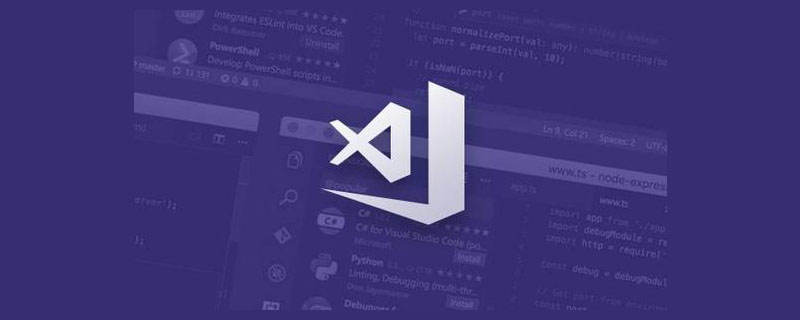
Running environment:
VSCode 1.68.1
wsl: ubuntu subsystem
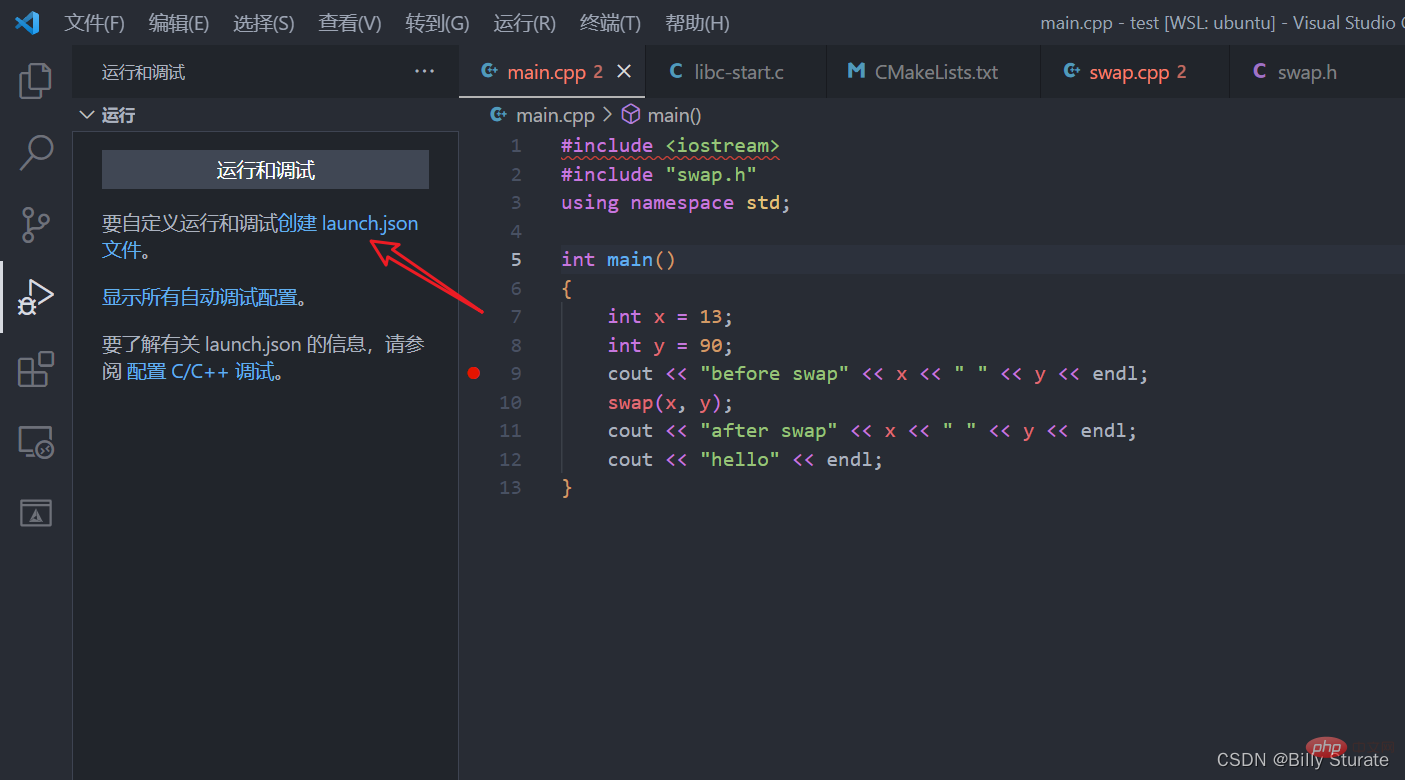
Without further ado, let’s start directly. First, select the fourth option on the left taskbar. [Recommended learning: vscode tutorial, Programming teaching]Running and debugging, click to create launch.json
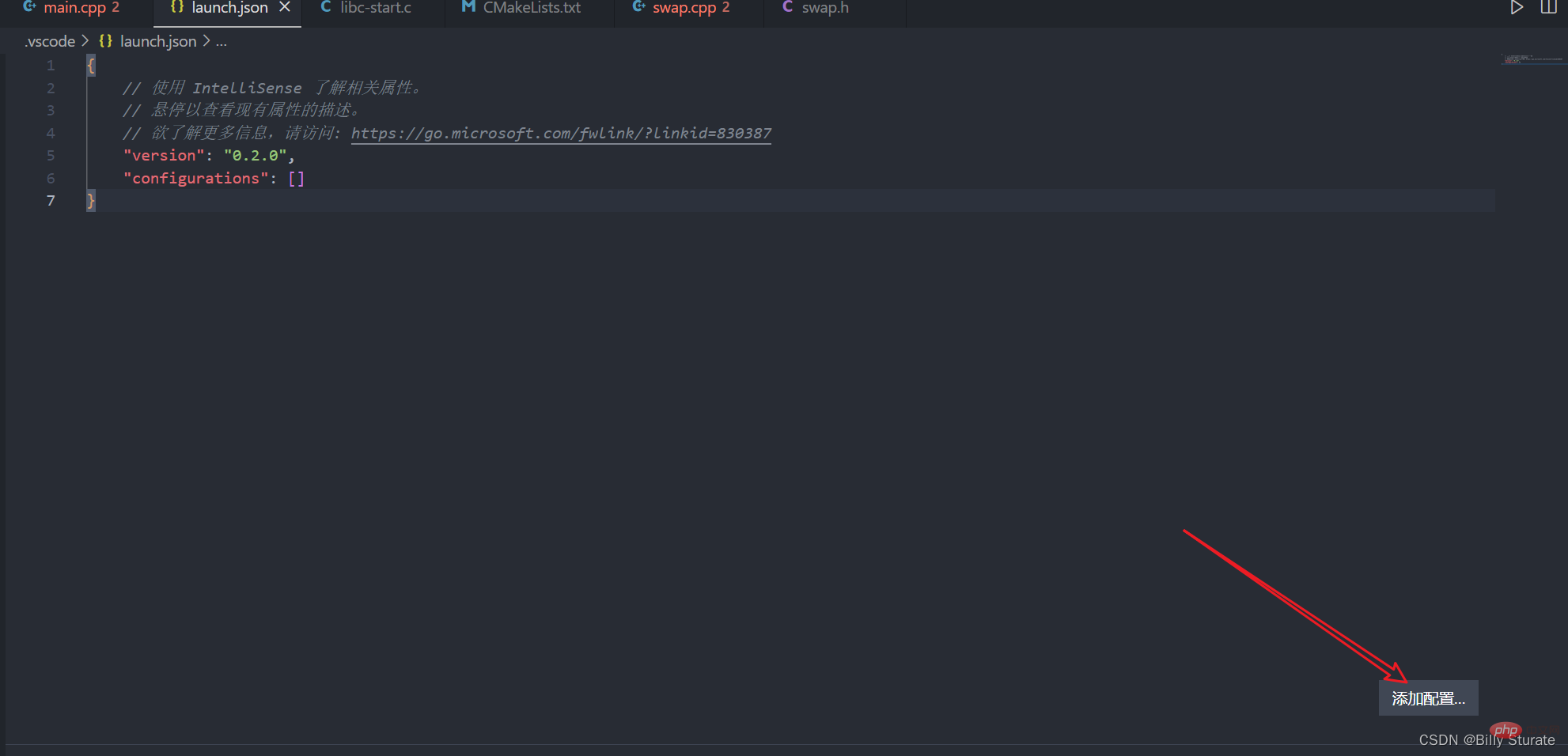
The created interface is as shown in the picture above. Click Add Configuration in the lower right corner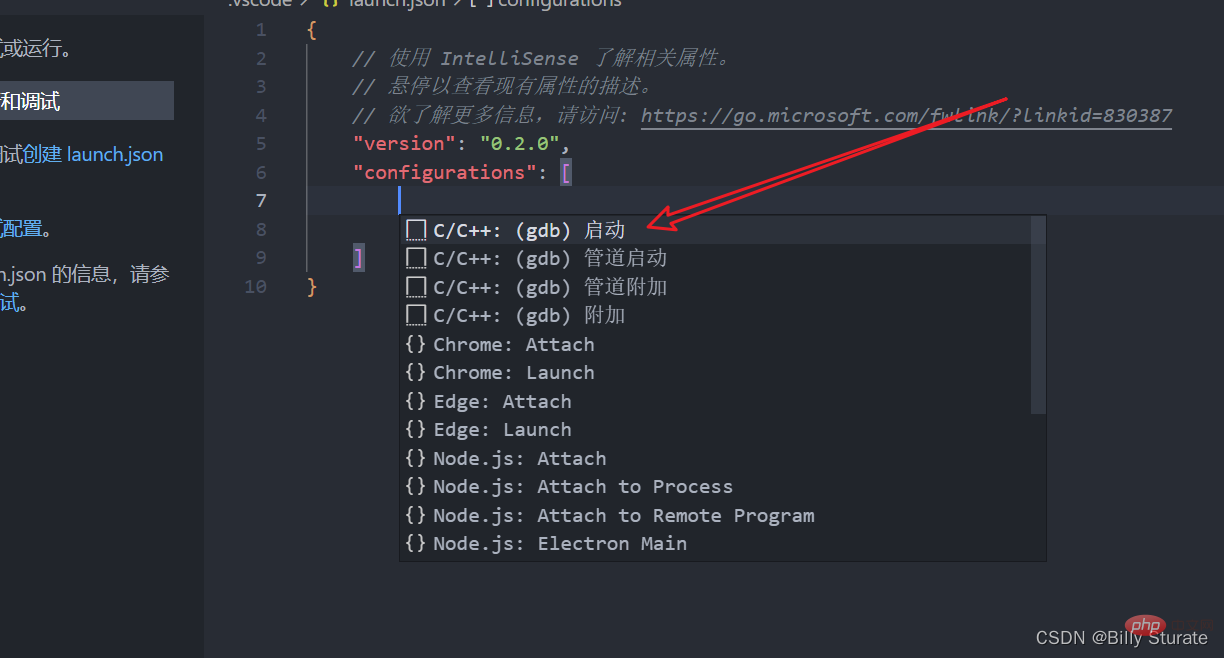
As shown in the picture above, select the firstc/c (gdb) to start
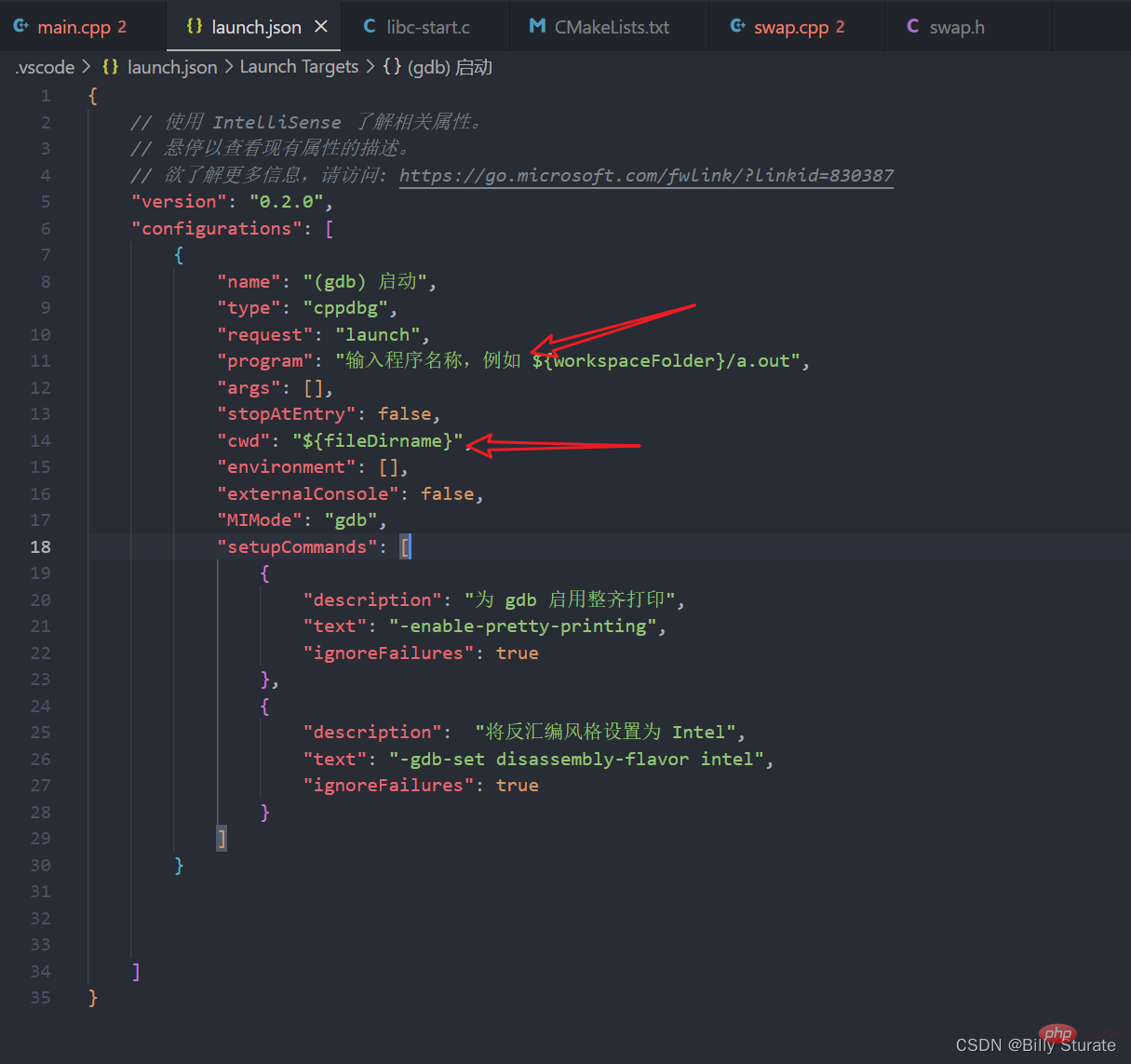
At this time, the code shown in the picture above will be generated. Pay attention to the two places where I drew the arrows. The cwd is the working directory where our current file is located. Change the two places where I drew the arrows to be the same.
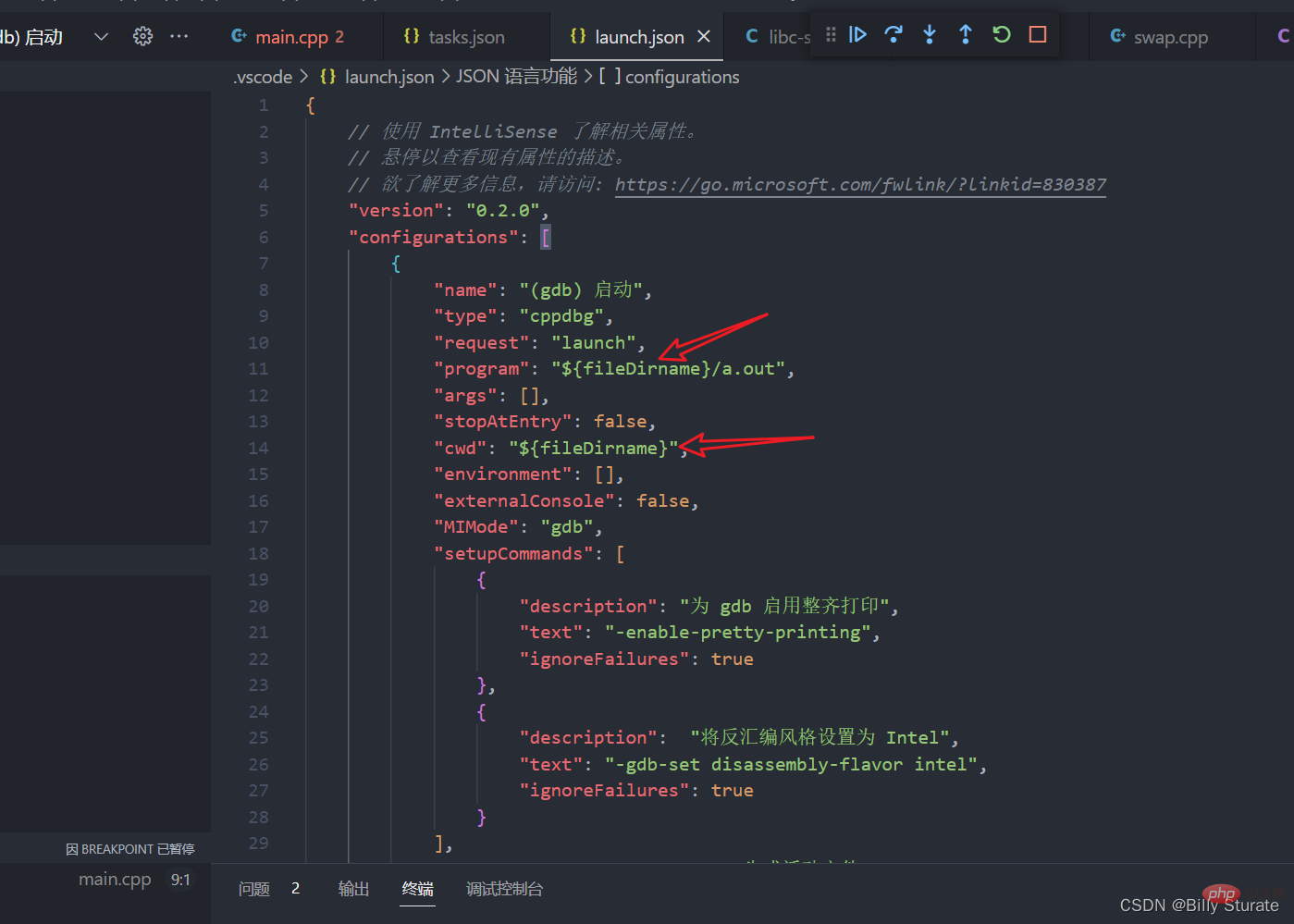
After the modification, it is as shown in the picture above. The a.out behind is the name of the executable file we will debug later. You can also use the one generated by the system here. Change it to your own That's fine, next we start configuring tasks.json
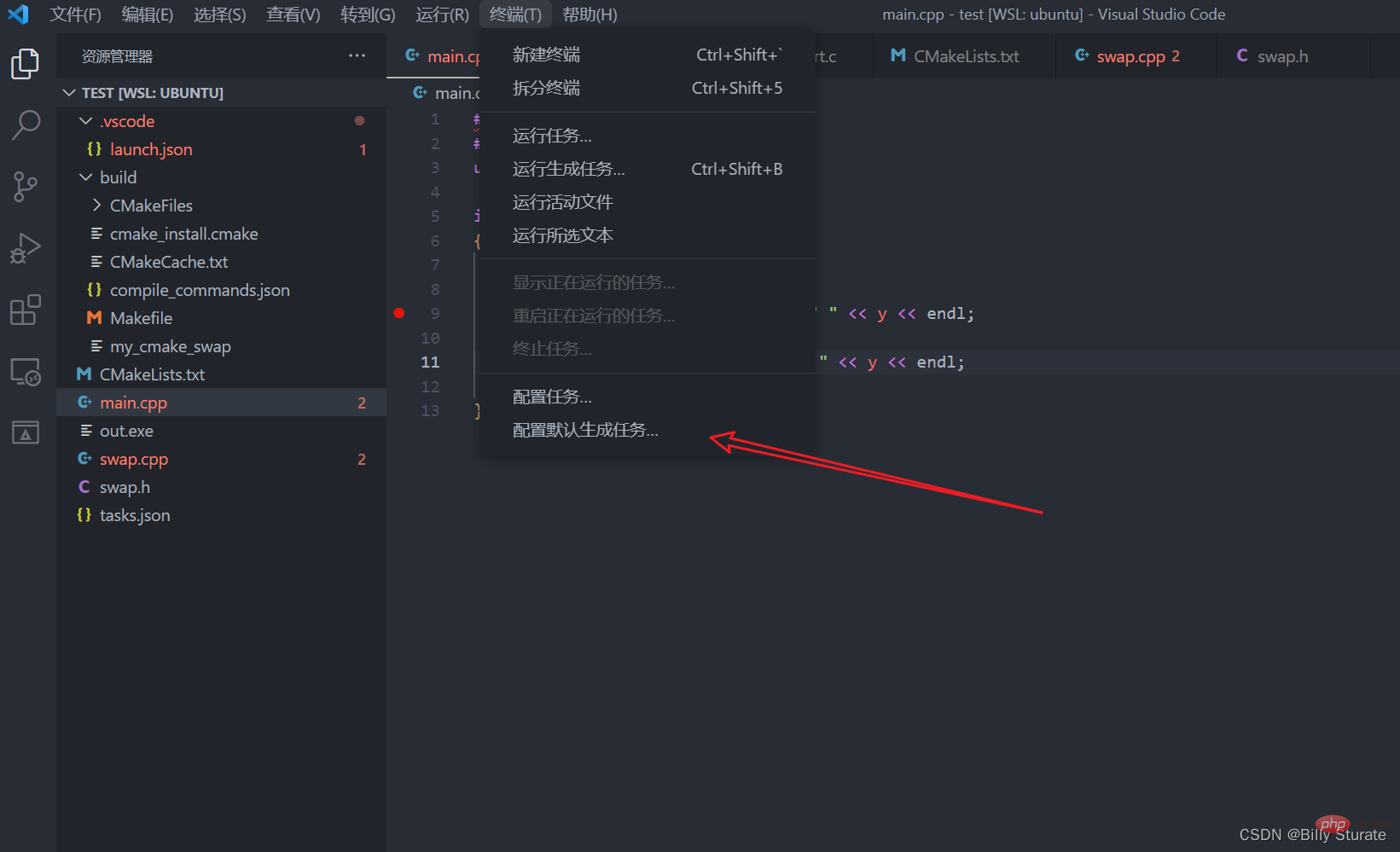
First go back to main.cpp, then click on the terminal in the menu bar above and select the last to configure the default Generate task
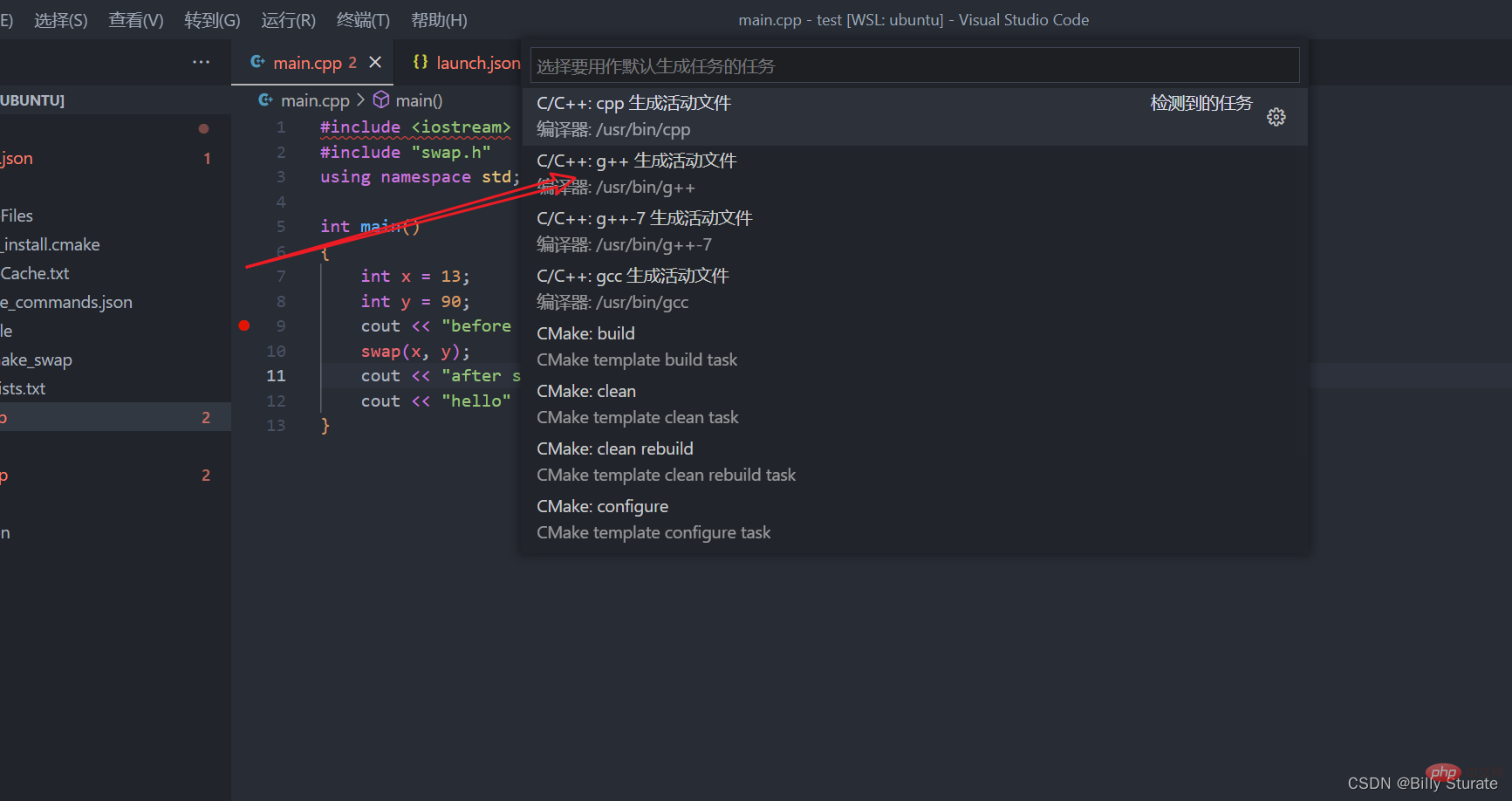
#At this time, as shown above, select the second c/c :g to generate the active file
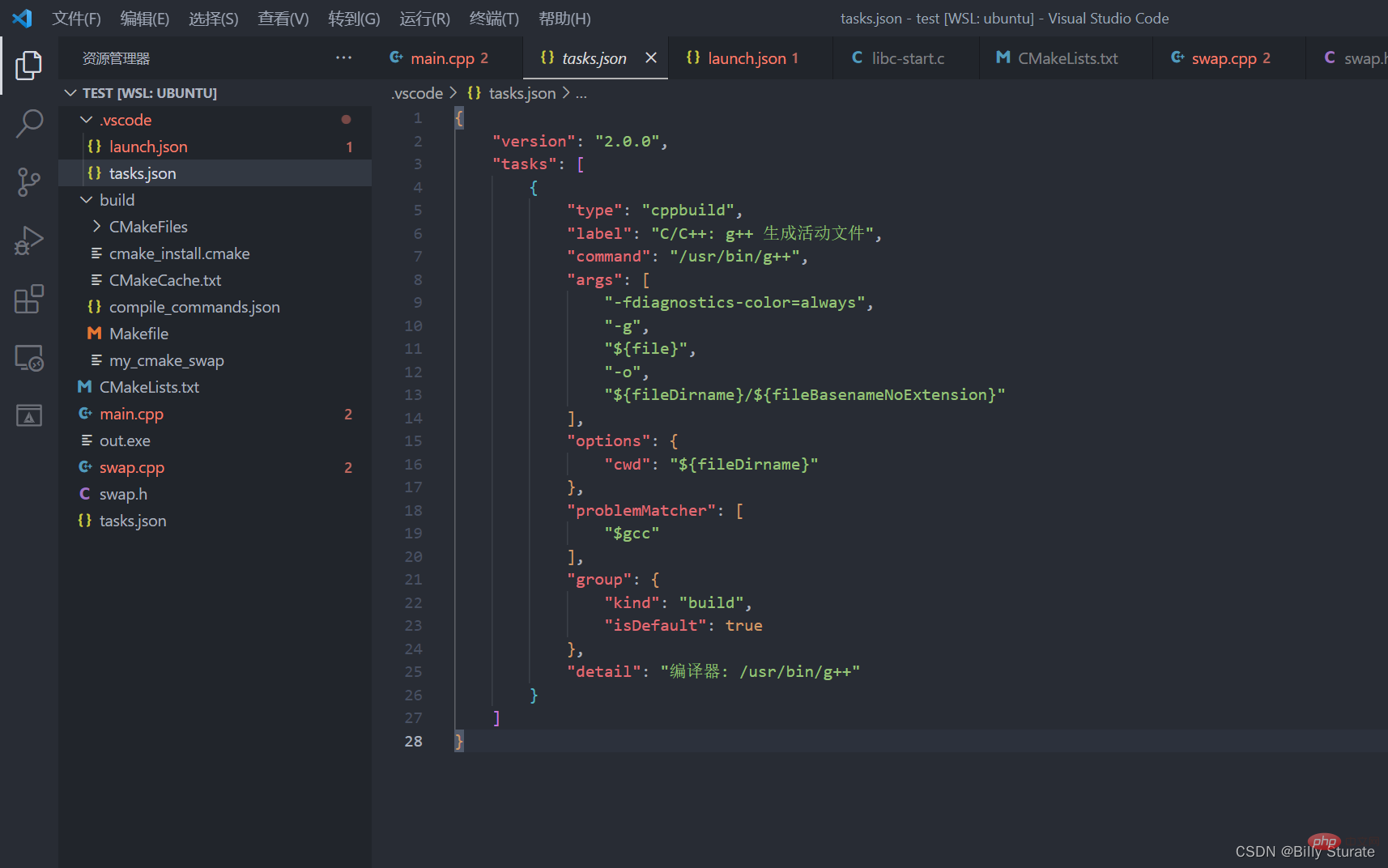
As shown in the figure above, tasks.json is generated. Then we open launch.json to make a comparison. We first add a line of code "preLaunchTask" after launch.json. This line of code It means the name of the task that is run before launch. This name must be consistent with the task name in tasks.json. As shown in the figure below, the label in tasks.json must be exactly the same as the preLaunchTask in launch.json, because during execution Before launch.json, the system will first execute the contents of tasks.json based on this line of code. It can be simply understood that the code in tasks.json will help us compile and generate an executable file using g/gcc, and the code in launch.json It is to let the system debug our executable file.
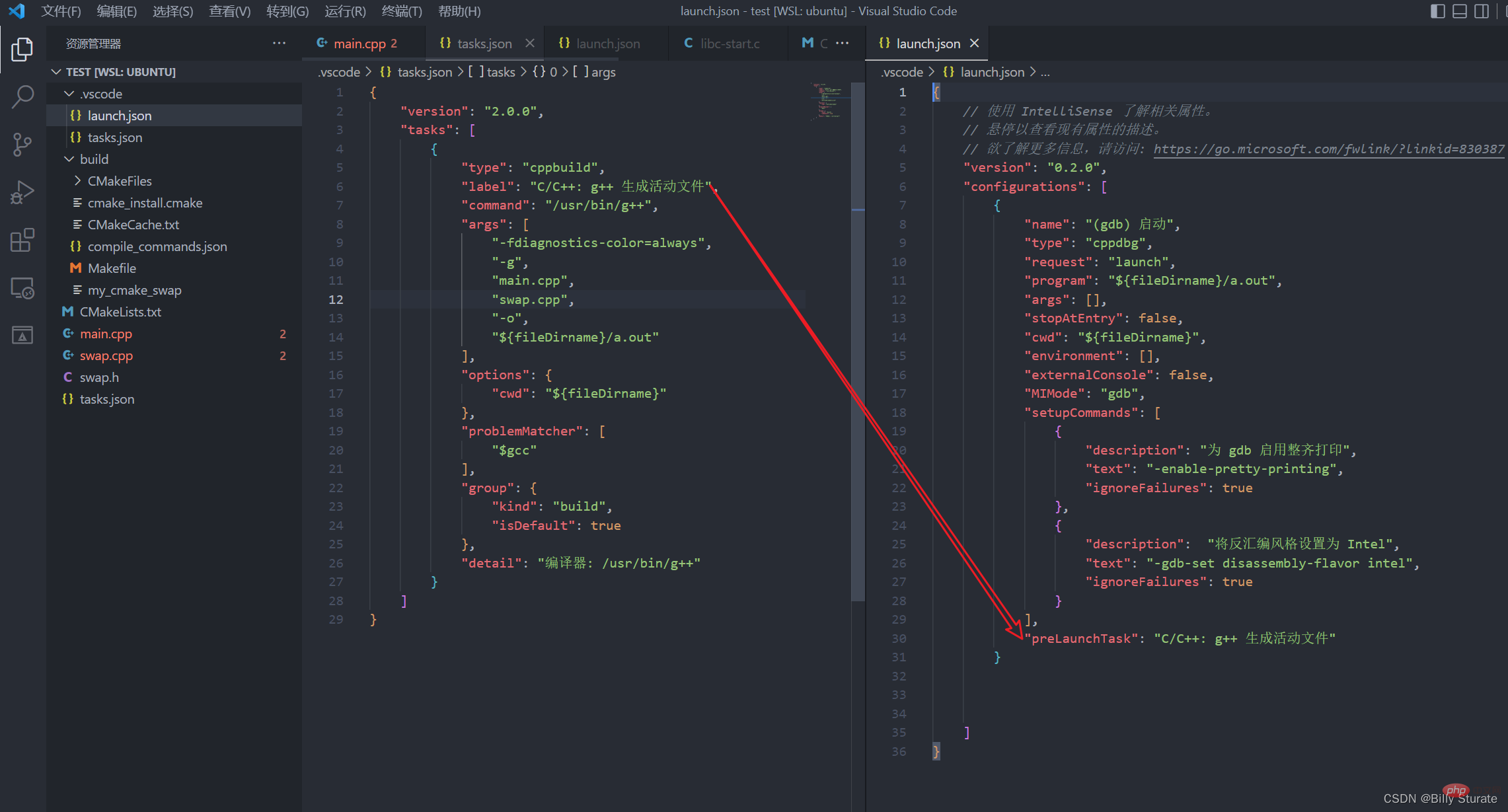
Next, you will see the file in tasks.json, as shown in the figure below. The command configuration specifies the compiler, usually gcc or g compiler, and then The following args are the compilation options after the compiler. Note that -g means compiling an executable file with debugging information. If this -g is missing, the generated executable file cannot be debugged. The following main.cpp and swap.cpp is the name of the file to be compiled, the -0 parameter specifies the name of the generated executable file, the next line is the location of the generated executable file in the current working directory, the name is a.out
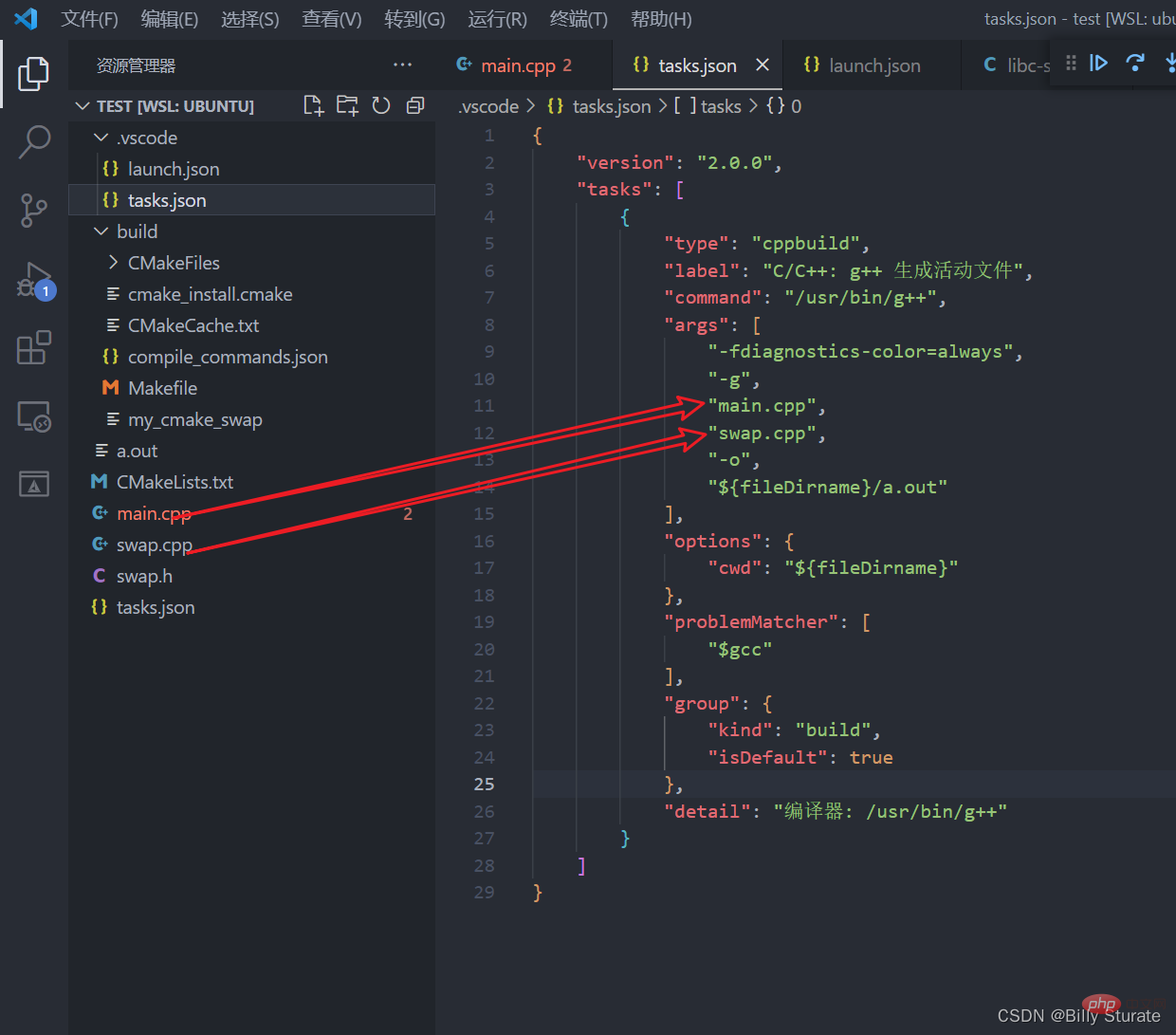
As shown in the figure below, everyone pays attention to the arrow part in the article. The two names must be the same. The one on the left is the generated executable file called a.out, and the one on the right is the debugging file called a. out, the name can be changed by yourself
So tasks.json is actually equivalent to helping us complete the operationg -g main.cpp swap.cpp -o a.out
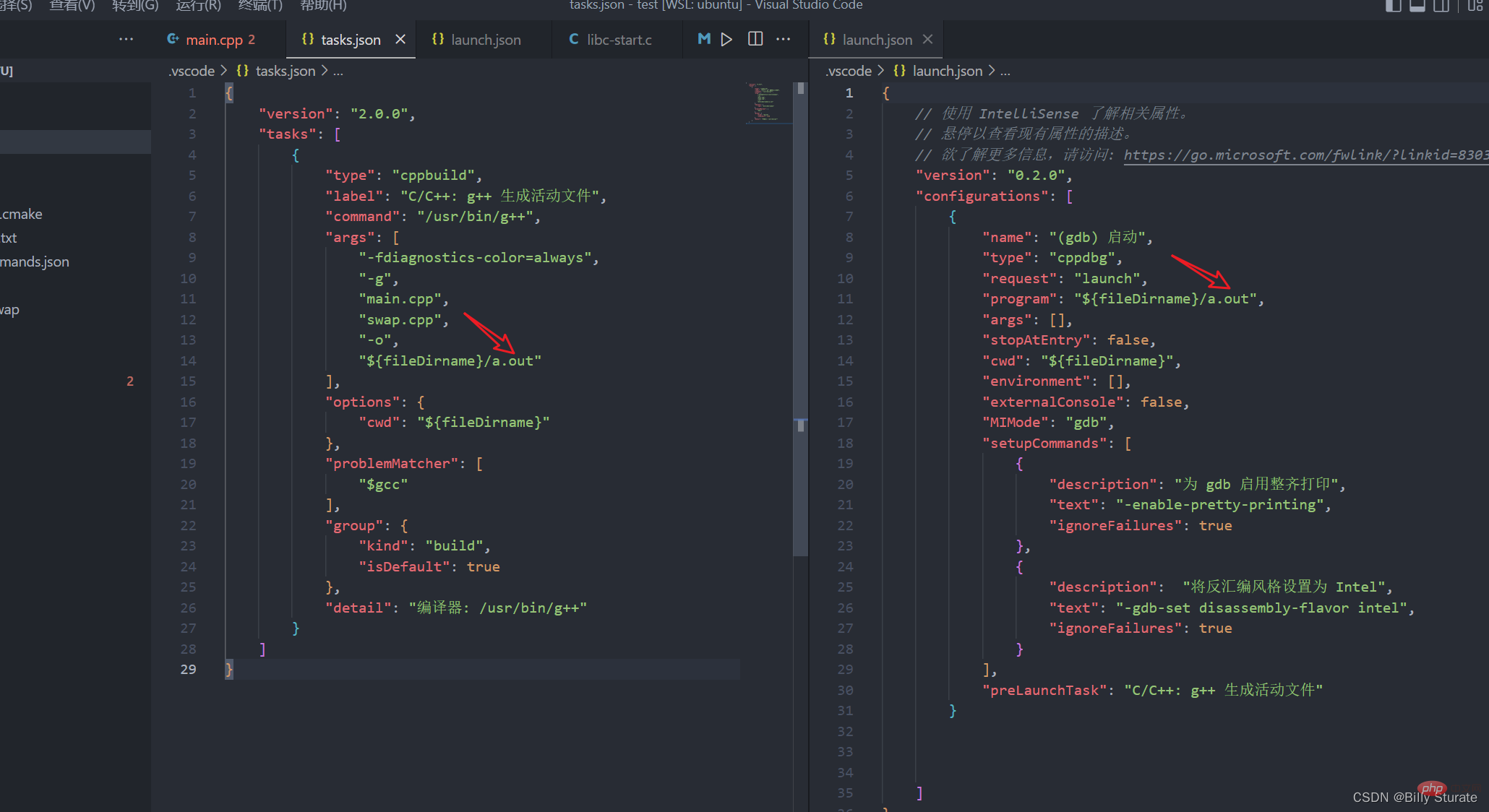
After configuring the above files, go back to main.cpp to set your own breakpoint, and then press the F5 key to debug. Success
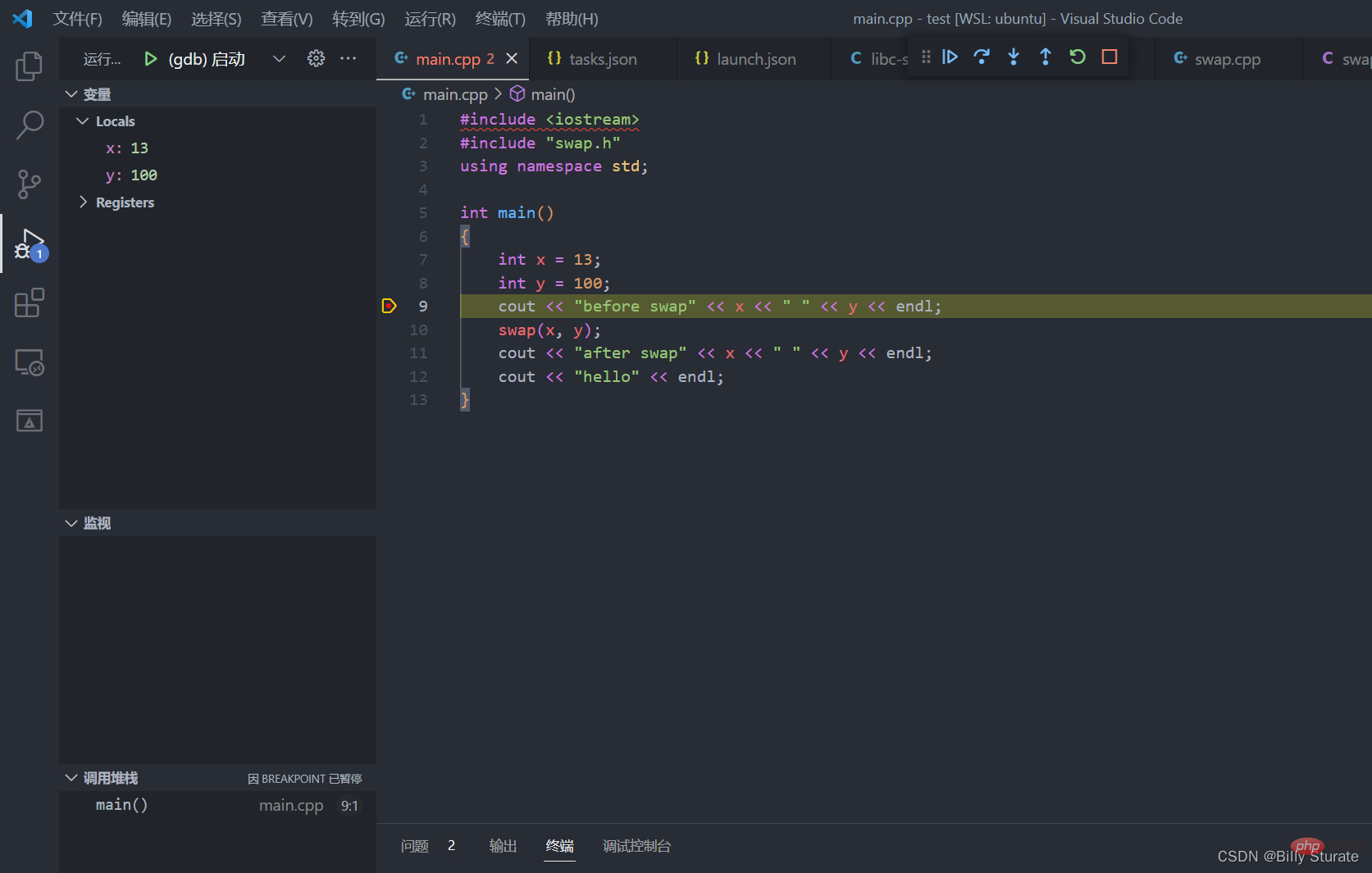
For more knowledge about VSCode, please visit: vscode Basic Tutorial!
The above is the detailed content of How to run and debug code in VScode? Tutorial sharing. For more information, please follow other related articles on the PHP Chinese website!

Hot AI Tools

Undress AI Tool
Undress images for free

Undresser.AI Undress
AI-powered app for creating realistic nude photos

AI Clothes Remover
Online AI tool for removing clothes from photos.

Clothoff.io
AI clothes remover

Video Face Swap
Swap faces in any video effortlessly with our completely free AI face swap tool!

Hot Article

Hot Tools

Notepad++7.3.1
Easy-to-use and free code editor

SublimeText3 Chinese version
Chinese version, very easy to use

Zend Studio 13.0.1
Powerful PHP integrated development environment

Dreamweaver CS6
Visual web development tools

SublimeText3 Mac version
God-level code editing software (SublimeText3)

Hot Topics
 How to connect to svn with vscode
Apr 16, 2025 am 07:15 AM
How to connect to svn with vscode
Apr 16, 2025 am 07:15 AM
如何使用 VSCode 连接 SVN?安装 Subversion 和 VSCode 插件。 Configure VSCode settings, specify the Subversion executable file path and authentication method. Right-click the project folder in VSCode Explorer and select "SVN > Checkout...". Enter the repository URL and enter the credentials as needed. Click Checkout to check out the project from the repository to the computer.
 Laravel environment construction and basic configuration (Windows/Mac/Linux)
Apr 30, 2025 pm 02:27 PM
Laravel environment construction and basic configuration (Windows/Mac/Linux)
Apr 30, 2025 pm 02:27 PM
The steps to build a Laravel environment on different operating systems are as follows: 1.Windows: Use XAMPP to install PHP and Composer, configure environment variables, and install Laravel. 2.Mac: Use Homebrew to install PHP and Composer and install Laravel. 3.Linux: Use Ubuntu to update the system, install PHP and Composer, and install Laravel. The specific commands and paths of each system are different, but the core steps are consistent to ensure the smooth construction of the Laravel development environment.
 How to create a web project with vscode
Apr 16, 2025 am 06:06 AM
How to create a web project with vscode
Apr 16, 2025 am 06:06 AM
Creating a web project in VS Code requires: Install the required extensions: HTML, CSS, JavaScript, and Live Server. Create a new folder and save the project file. Create index.html, style.css, and script.js files. Set up a live server. Enter HTML, CSS, and JavaScript code. Run the project and open it in your browser.
 Use VSCode to perform version fallback operation of code
May 15, 2025 pm 09:42 PM
Use VSCode to perform version fallback operation of code
May 15, 2025 pm 09:42 PM
In VSCode, you can use Git for code version fallback. 1. Use gitreset--hardHEAD~1 to fall back to the previous version. 2. Use gitreset--hard to fall back to a specific commit. 3. Use gitrevert to safely fall back without changing history.
 Environment configuration for running Ruby code in VSCode
May 15, 2025 pm 09:30 PM
Environment configuration for running Ruby code in VSCode
May 15, 2025 pm 09:30 PM
Configuring the Ruby development environment in VSCode requires the following steps: 1. Install Ruby: Download and install from the official website or using RubyInstaller. 2. Install the plug-in: Install CodeRunner and Ruby plug-ins in VSCode. 3. Set up the debugging environment: Install the DebuggerforRuby plug-in and create a launch.json file in the .vscode folder for configuration. This way, you can write, run, and debug Ruby code efficiently in VSCode.
 How to manually install plugin packages in VSCode
May 15, 2025 pm 09:33 PM
How to manually install plugin packages in VSCode
May 15, 2025 pm 09:33 PM
The steps to manually install the plug-in package in VSCode are: 1. Download the .vsix file of the plug-in; 2. Open VSCode and press Ctrl Shift P (Windows/Linux) or Cmd Shift P (Mac) to call up the command panel; 3. Enter and select Extensions:InstallfromVSIX..., then select .vsix file and install. Manually installing plug-ins provides a flexible way to install, especially when the network is restricted or the plug-in market is unavailable, but attention needs to be paid to file security and possible dependencies.
 Configure VSCode and GitHub for code synchronization
May 20, 2025 pm 06:33 PM
Configure VSCode and GitHub for code synchronization
May 20, 2025 pm 06:33 PM
Configuring VSCode to synchronize code with GitHub can improve development efficiency and team collaboration. First, install the "GitHubPullRequestsandIssues" and "GitLens" plugins; second, configure the GitHub account; then clone or create a repository; finally, submit and push the code to GitHub.
 Best Practices for Writing JavaScript Code with VSCode
May 15, 2025 pm 09:45 PM
Best Practices for Writing JavaScript Code with VSCode
May 15, 2025 pm 09:45 PM
Best practices for writing JavaScript code in VSCode include: 1) Install Prettier, ESLint, and JavaScript (ES6) codesnippets extensions, 2) Configure launch.json files for debugging, and 3) Use modern JavaScript features and optimization loops to improve performance. With these settings and tricks, you can develop JavaScript code more efficiently in VSCode.







